1. Early Life and Background
Sadiq Aman Khan was born on 8 October 1970 at St George's Hospital in Tooting, South London. He is the fifth of eight children, with seven brothers and one sister, born into a working-class Sunni Muslim-Muhajir family. His paternal grandparents migrated from Lucknow in British India to Pakistan following the partition of India in 1947. His parents, Amanullah and Sehrun, arrived in London from Pakistan in 1968. His father, Amanullah, worked as a bus driver for over 25 years, and his mother, Sehrun, was a seamstress.
Khan and his siblings were raised in a three-bedroom council flat on the Henry Prince Estate in Earlsfield. From a young age, Khan worked to contribute to the family, taking on jobs such as a paper round and a Saturday job on a building site. Between the ages of 18 and 21, while studying for his degree, he also worked at the Peter Jones department store in Sloane Square. The family continues to send money to relatives in Pakistan. Khan and his family frequently encountered racism, which led him and his brothers to take up boxing at the Earlsfield Amateur Boxing Club as a means of self-defense and community engagement.
1.1. Childhood and Education
Khan attended Fircroft Primary School before moving on to Ernest Bevin School, a local comprehensive school. He initially studied science and mathematics at A-level with aspirations of becoming a dentist. However, a teacher, noting his argumentative personality, recommended he pursue law. This suggestion, combined with inspiration from the American television programme L.A. Law, led Khan to change his career path. He subsequently studied law at the University of North London (now London Metropolitan University). After completing his law degree in 1991, Khan took his Law Society finals at the College of Law in Guildford.
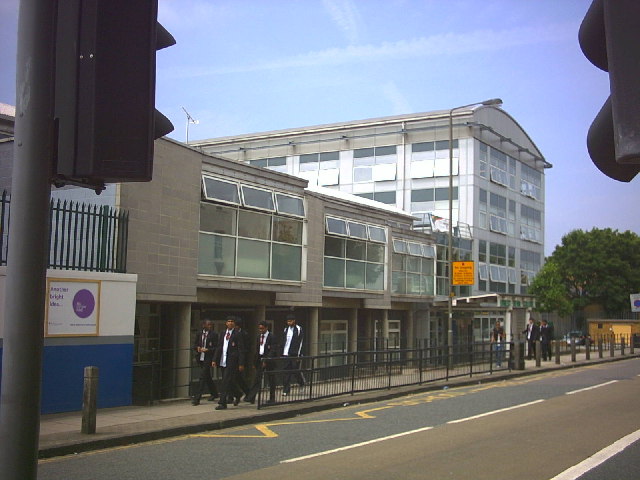
2. Legal Career
Before his election to the House of Commons in 2005, Sadiq Khan built a distinguished career as a solicitor, specializing in human rights law. In 1994, the same year he married fellow solicitor Saadiya Ahmed, he began his professional journey as a trainee solicitor at Christian Fisher, a firm predominantly handling legal aid cases. The firm was led by partners Michael Fisher and Louise Christian.
Khan became a partner at Christian Fisher in 1997, focusing on human rights law. In 2002, following Michael Fisher's departure, the firm was renamed Christian Khan. Khan left the firm in 2004, having been selected as the prospective Labour candidate for the Tooting parliamentary constituency.
During his legal career, Khan was involved in numerous high-profile cases, particularly those concerning employment law, discrimination law, judicial reviews, inquests, and actions against the police. His notable cases include:
- Bubbins vs United Kingdom before the European Court of Human Rights, concerning the shooting of an unarmed individual by police marksmen.
- Dr Jadhav v Secretary of State for Health, a case addressing racial discrimination in the employment of Indian doctors within the health service.
- CI Logan v Met Police and Supt Dizaei v Met Police, both involving claims of racial discrimination and police damages.
- The inquest into the death of David Rocky Bennett, which examined the use of restraints.
- Serving as the lead solicitor for the Mayday demonstration 2001 test case litigation, which invoked the Human Rights Act 1998.
- Farrakhan v Home Secretary in 2001, where Khan represented American Nation of Islam leader Louis Farrakhan in the High Court, successfully overturning an entry ban to the United Kingdom that had been in place since 1986, though the government later won on appeal.
- Representing a group of Kurdish actors who were wrongfully arrested by Metropolitan Police during a rehearsal of the Harold Pinter play Mountain Language in February 2000, securing 150.00 K GBP in damages for their wrongful arrest and the resulting trauma.
- Representing Maajid Nawaz, Reza Pankhurst, and Ian Nisbet in an Egyptian court after they were arrested on charges of attempting to revive Hizb ut-Tahrir.
- HSU and Thompson vs Metropolitan Police and Reeves vs Metropolitan Police, involving wrongful arrests and the duty of care for prisoners.
- Murray vs CAB and Ahmed vs Oxford University, both concerning discrimination cases.
- McDowell and Taylor vs Metropolitan Police, a successful lawsuit against Metropolitan Police for assault and false imprisonment.
3. Political Career
Sadiq Khan's political career has seen a steady rise from local government to national and then mayoral leadership, marked by his commitment to civil liberties and social justice.
3.1. Local Politics and Early Parliamentary Years
Khan began his political journey in local government, serving as a councillor for Wandsworth Council from 1994 to 2006, representing Tooting. Upon his retirement from local politics, he was granted the honorary title of Alderman of Wandsworth.
In 2003, the Tooting Constituency Labour Party opened its parliamentary selection to all interested candidates, including the long-serving incumbent MP, Tom Cox. This led Cox to announce his retirement, and Khan subsequently won the selection contest against five other local candidates. He was elected to Parliament at the 2005 United Kingdom general election, becoming the MP for Tooting.
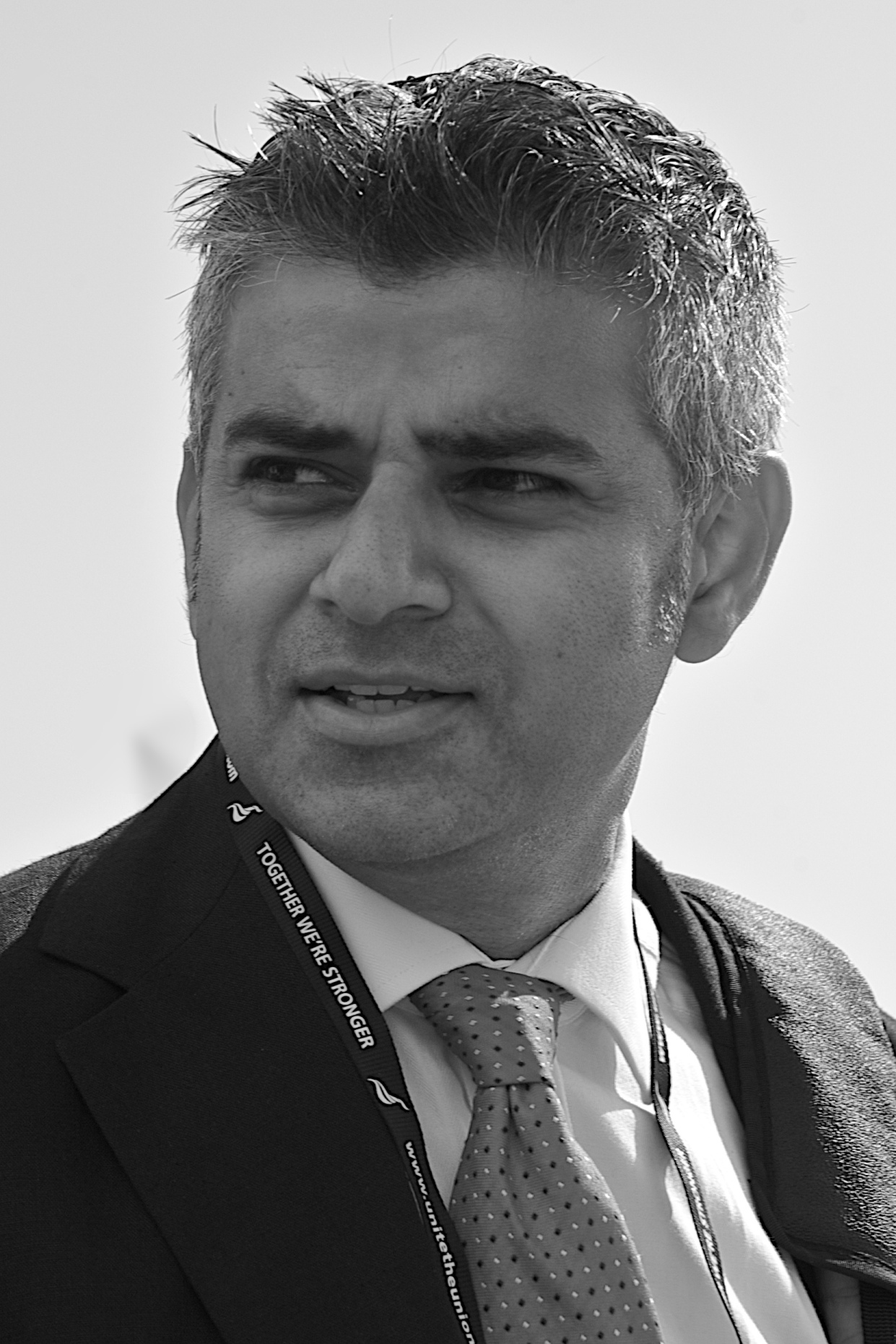
During his first term as an MP, Khan was a vocal critic of several policies under then-Labour Prime Minister Tony Blair. He notably led the successful opposition to Blair's proposal to introduce 90 days' detention without charge for individuals suspected of terrorism offenses. His principled stance earned him the "Newcomer of the Year Award" at the 2005 Parliamentarian of the Year Awards from The Spectator, a right-wing magazine then edited by Boris Johnson. The magazine praised him for the "tough-mindedness and clarity" with which he addressed the complex issues of Islamic terror.
In August 2006, following the arrest of seven terrorists involved in the 2006 transatlantic aircraft plot, Khan signed an open letter to Tony Blair, published in The Guardian. The letter, co-signed by prominent Muslims, criticized UK foreign policy, particularly the 2003 invasion of Iraq, arguing that Blair's policies had caused significant harm to civilians in the Middle East and provided "ammunition to extremists who threaten us all." This drew criticism from Labour Home Secretary John Reid, who called it a "dreadful misjudgement," and former Conservative leader Michael Howard, who described it as "a form of blackmail."
In 2007, Khan repaid 500 GBP in expenses related to a newsletter sent to constituents that featured an unduly prominent "Labour rose" logo. While the content was not deemed party political, the logo was found to promote a political party. The rules were retrospectively changed, disallowing the claim, which had previously been approved. There was no suggestion that Khan had deliberately or dishonestly compiled his expense claims.
In February 2008, The Sunday Times reported that a conversation between Khan and his constituent Babar Ahmad, a prisoner accused of terrorism, at Woodhill Prison had been bugged by the Metropolitan Police Anti-Terrorist Branch. This sparked an inquiry by then-Justice Secretary Jack Straw. Concerns were raised that the bugging violated the Wilson Doctrine, which generally prohibits the bugging of MPs. The inquiry concluded that the doctrine did not apply as the monitoring was authorized by a senior police officer, not requiring Home Secretary approval. Following this, Home Secretary Jacqui Smith announced a policy review and stated that bugging discussions between MPs and their constituents should be banned.
3.2. Ministerial and Shadow Cabinet Roles
When Gordon Brown succeeded Tony Blair as Prime Minister and Labour Party leader in June 2007, Khan's parliamentary career advanced significantly. Brown appointed Khan as a party whip, responsible for ensuring the passage of Labour-sponsored legislation. In July 2008, Khan supported a government proposal to permit the detention of terror suspects for 42 days without charge, a stance that drew criticism from civil liberties advocates like Shami Chakrabarti, who argued he had contravened his principles.
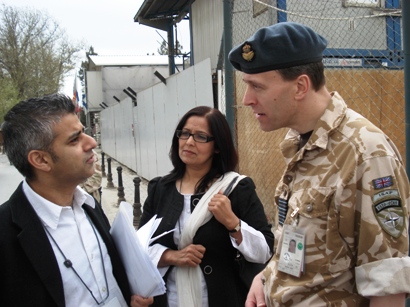
On 3 October 2008, during Brown's Cabinet reshuffle, Khan was appointed Parliamentary Under-Secretary of State for Communities and Local Government. In January 2009, Khan publicly criticized Pope Benedict XVI for rehabilitating Bishop Richard Williamson following his remarks about the Holocaust, describing the move as "highly unsavoury" and of "great concern."
In June 2009, Khan was promoted to Minister of State for Transport. He notably used his Twitter account to self-announce his promotion, believed to be a first for an MP. Although not a full member of the cabinet, he attended meetings for agenda items related to his policy area, becoming the first Muslim to attend the British Cabinet. As Transport Minister, Khan supported plans to expand Heathrow Airport with the addition of a third runway.
During this period, Khan served as chairman of the socialist Fabian Society from 2008 to 2010, remaining on its executive committee. In 2009, he received the Jenny Jeger Award for his book Fairness Not Favours: How to re-connect with British Muslims. In this work, Khan argued that the Labour Party needed to rebuild trust with British Muslims, which he believed had been eroded by the Iraq War. He also asserted that British Muslims had a responsibility to overcome a victim mentality and take greater ownership of their community. In March 2010, Khan publicly declined a pay rise as an MP or Minister for the second consecutive year, stating it was inappropriate given the pay freezes faced by many across the country.
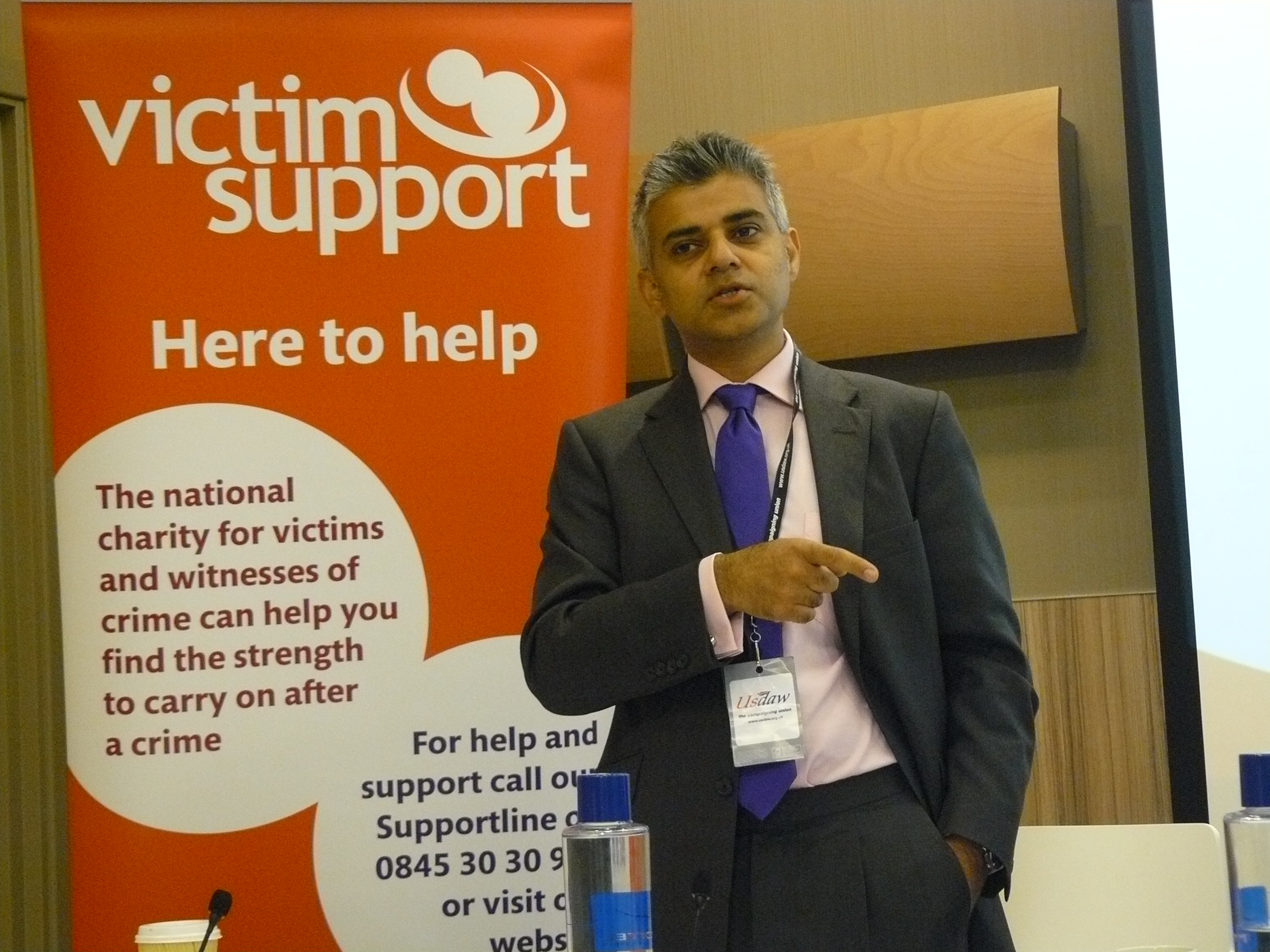
In the 2010 United Kingdom general election, Khan was re-elected as the MP for Tooting, despite a 3.6% swing against the Labour Party. His campaign was reportedly aided by Harris Bokhari, who allegedly leveraged anti-Ahmadiyya sentiment to mobilize Muslim voters at a mosque in Tooting to support Khan over the Liberal Democrat candidate, Nasser Butt, an Ahmadiyya. In 2019, Bokhari was appointed to Khan's new Diversity, Equality and Inclusion Advisory Group.
Following Labour's defeat in the 2010 election, acting leader Harriet Harman appointed Khan as Shadow Secretary of State for Transport. Khan played a pivotal role in Ed Miliband's successful campaign to become Labour leader, serving as his campaign manager. Subsequently, Miliband appointed Khan to the senior roles of Shadow Lord Chancellor and Shadow Justice Secretary.

In April 2010, it was revealed that Khan had repaid falsely claimed expenses on two occasions. The first involved letters sent before the 2010 General Election, which were ruled to have the "unintentional effect of promoting his return to office." The second was a 2.55 K GBP repayment for Christmas, Eid, and birthday cards sent to constituents, dating back to 2006. House of Commons rules stipulate that pre-paid envelopes and official stationery can only be used for official parliamentary business. Khan's claim for the greeting cards was initially rejected, but he submitted a new invoice that did not specify the nature of the claim, which was then accepted. Khan attributed the improper claims to "inexperience" and human error, and he apologized for breaching the expenses rules.
In early 2013, Miliband appointed Khan as the Shadow Minister for London, a position he held in addition to his other responsibilities. In December 2013, the Fabian Society published Our London, a collection of essays edited by Khan. He also oversaw Labour's campaign for the 2014 London local elections, which saw the party increase its control in the city, winning 20 of the 32 boroughs. By this point, there was considerable speculation about Khan's potential bid for the London Mayoralty in 2016, as incumbent Mayor Boris Johnson was stepping down. His decision hinged on the outcome of the 2015 United Kingdom general election; a Labour victory would likely lead to a government ministerial role, while a defeat would free him to pursue the Mayoralty. In December 2015, Khan voted against the Cameron government's plans to expand bombing targets against the Islamic State.
Despite polls suggesting Labour could form the largest party in a hung parliament after the 2015 general election, the Conservatives ultimately secured a victory. Khan was re-elected for a third term as MP for Tooting, defeating his Conservative rival by 2,842 votes. He was one of 36 Labour MPs who nominated Jeremy Corbyn as a candidate in the 2015 Labour leadership election, stating he did so to "broaden the debate" but did not vote for Corbyn. He later clarified that he was "no patsy" to Corbyn and would challenge him when necessary.
On 9 May 2016, Khan resigned as an MP by his appointment to the ancient office of Crown Steward and Bailiff of The Three Chiltern Hundreds, a customary practice in the UK. This triggered a by-election in Tooting, which was held on 16 June 2016.
Khan is regularly named among the Top 100 London politicians in the London Evening Standard annual poll of the 1,000 most influential Londoners. He also serves as an Ambassador for Mosaic Network, an initiative established by Prince Charles. In 2023, the New Statesman recognized Khan as the seventeenth most powerful left-wing figure.
4. Mayor of London
In 2016, Sadiq Khan successfully ran for Mayor of London, securing 57% of the vote. His victory made him the third individual to hold the office and marked a historic moment as he became London's first Muslim mayor and first ethnic minority mayor. He was officially sworn in at a multi-faith ceremony held in Southwark Cathedral on 7 May 2016, though he technically took office on 9 May due to election result delays. His first public act as mayor was attending a Holocaust memorial ceremony in North London.
4.1. 2016 Mayoral Election and First Term
Following Labour's defeat in the 2015 United Kingdom general election, Sadiq Khan resigned from the Shadow Cabinet and announced his candidacy for the Labour nomination in the 2016 London mayoral election. He quickly garnered support from influential figures across the Labour Party's ideological spectrum, including former Mayor of London Ken Livingstone (from the party's left-wing) and Oona King (from the centrist, Blairite wing). He also received endorsements from key Labour-affiliated unions, GMB and Unite, and the nomination of 44 out of Labour's 73 parliamentary constituent parties in London, establishing him as a leading contender.
Khan's main opponent in the mayoral election was the Conservative candidate, Zac Goldsmith. Khan characterized Goldsmith as a "spoiled dilettante" who "never finishes anything he starts." Despite a YouGov poll for LBC suggesting that another Labour contender, Tessa Jowell, would defeat Goldsmith while Khan would not, Khan emphasized his working-class background in hustings, contrasting it with Jowell's wealthier upbringing. He also advocated for significant change in London, subtly implying that Jowell represented too much continuity with the outgoing Boris Johnson administration. In September 2015, Khan was officially announced as the Labour nominee, securing 48,152 votes (58.9%) against Jowell's 35,573 (41.1%). He was the preferred candidate across all three voting categories: Labour Party members, members of affiliated trade unions and organizations, and registered supporters who had paid 3 GBP to vote.
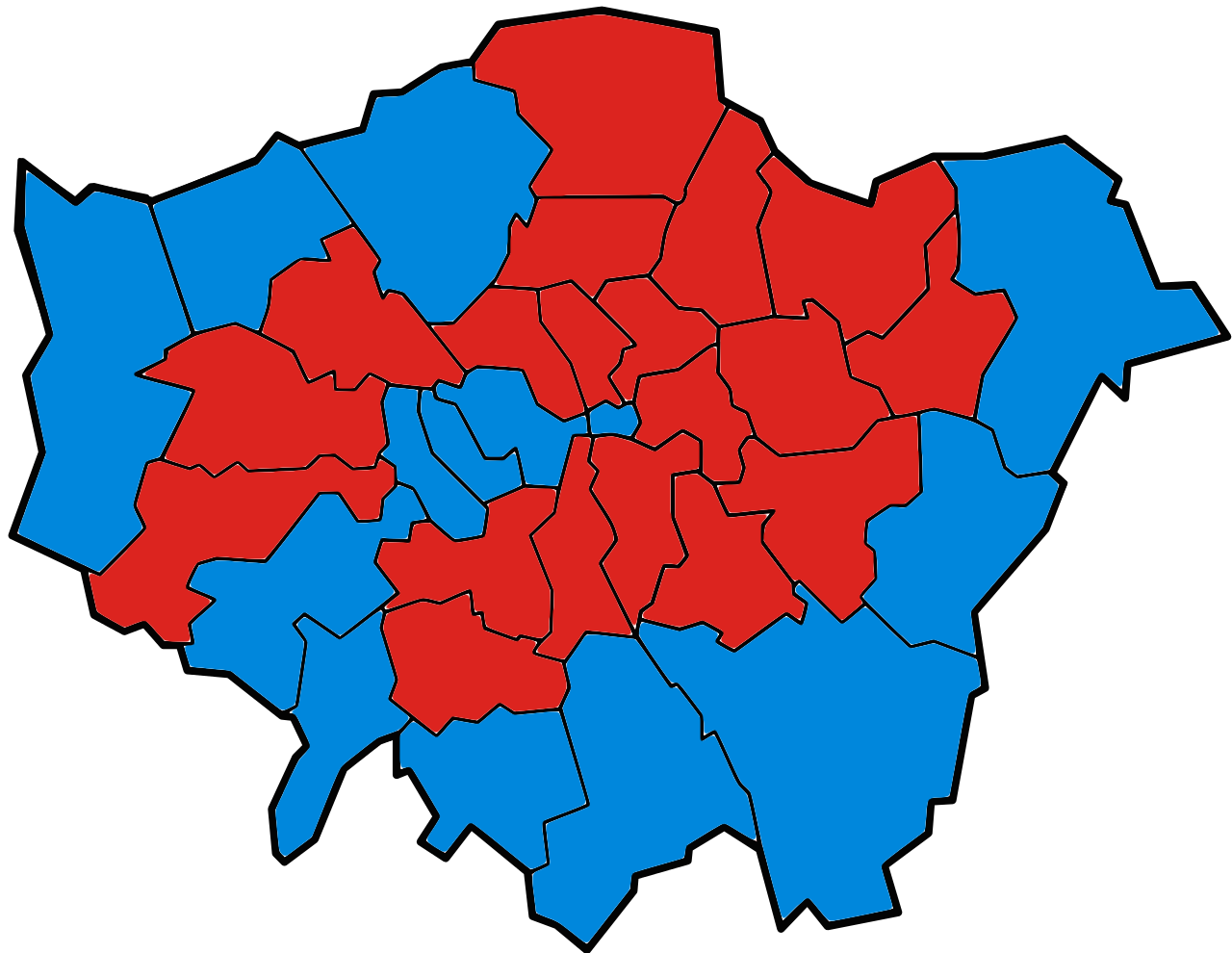
During his campaign, Khan made several key pledges. He vowed to freeze public transport fares in London for four years, a promise he estimated would cost Transport for London (TfL) 452.00 M GBP, though TfL projected the cost to be 1.90 B GBP considering future population growth. While he had previously supported Heathrow expansion, he shifted his stance to oppose it, instead advocating for expansion at Gatwick Airport. He also proposed measures to curb foreign property investors, suggesting a "London living rent" tenure and a not-for-profit lettings agency to reduce high rental costs. Additionally, he called for house building on TfL-owned land, insisting that at least 50% of new constructions should be "genuinely affordable."
The campaign faced challenges, including a YouGov poll revealing that 31% of Londoners felt "uncomfortable" with a Muslim mayor. Khan publicly opposed homophobia and declared "zero tolerance for anti-Semitism." He condemned Islamic extremism and urged the Muslim community to take a leading role in combating it, while also acknowledging the Islamophobia faced by many British Muslims. He aimed to be "the most pro-business mayor ever," engaging with groups like the Federation of Small Businesses and City of London Corporation. The Conservative campaign and several Conservative-aligned newspapers were accused of attempting to link Khan to then-Labour leader Jeremy Corbyn and of portraying him as an apologist or sympathizer for Islamic extremism. International press often highlighted his religious identity, with some right-wing American media outlets reacting with alarm to his election.
Khan ultimately won the election with 57% of the vote, receiving 1.3 million votes, which was the largest personal vote ever achieved by a UK politician at that time. His victory was widely noted as he became the first actively affiliated Muslim to serve as mayor of a major Western capital.
4.2. Re-elections (2021 and 2024)
Following the 2019 United Kingdom general election and the subsequent resignation of Jeremy Corbyn as Labour Party leader, there was speculation about whether Sadiq Khan would run in the leadership election. However, he ruled out a bid for the party leadership, stating his absolute preference to seek a second term as Mayor of London.
In the 2021 London mayoral election, Khan was successfully re-elected for his second term, defeating the Conservative candidate Shaun Bailey. He further solidified his political position in the 2024 London mayoral election, where he was re-elected for a third term, defeating Conservative candidate Susan Hall. This victory made him the first London mayor to serve three terms, marking a significant achievement in the city's political history.
4.3. Key Policies and Initiatives
During his terms as Mayor of London, Sadiq Khan has pursued a wide range of policies and initiatives across various sectors, focusing on improving the quality of life for Londoners, promoting diversity, and addressing key urban challenges.
4.3.1. European Union and Brexit
In the lead-up to the referendum on the UK's continuing membership of the European Union (EU), Sadiq Khan was a strong advocate for the "Remain" campaign. He demonstrated cross-party support by attending a Britain Stronger in Europe campaign event with Conservative Prime Minister David Cameron, a move that drew criticism from Labour Shadow Chancellor John McDonnell, who felt sharing a platform with Conservatives "discredits us." Following the murder of MP Jo Cox during the campaign, Khan urged a collective "pause and reflect" on the tone of the debate, describing it as marred by a "climate of hatred, of poison, of negativity, of cynicism."
After the "Leave" vote prevailed, Khan promptly affirmed that all EU citizens living in London remained welcome and expressed gratitude for their contributions to the city. He supported the Metropolitan Police's "We Stand Together" campaign to combat the rise in racial abuse observed after the referendum and backed the "London is Open" campaign to encourage businesses, artists, and performers to continue engaging with the city despite Brexit.
Khan remained a vocal proponent of closer ties with the EU. On 20 October 2018, he participated in the People's Vote march from Park Lane to Parliament Square, advocating for a referendum on the final Brexit deal. While organizers claimed nearly 700,000 attendees, a later police debriefing document prepared by Khan's Greater London Authority estimated the number to be 250,000 people. On 23 March 2019, Khan again joined the Put It to the People march in London, supporting a second Brexit referendum. He addressed a rally at the conclusion of the march alongside prominent political figures including SNP leader Nicola Sturgeon, Conservative peer Michael Heseltine, former Attorney General Dominic Grieve, and Labour's deputy leader Tom Watson.
In January 2023, Khan expressed that he could not ignore the "immense damage" caused by Brexit, arguing for a more pragmatic approach to mitigate its negative effects, including a debate on rejoining the single market. He believed Brexit had "weakened our economy, fractured our union and diminished our reputation," but crucially, "not beyond repair." In April 2024, Khan called for the UK to establish a youth mobility scheme with the European Union, emphasizing its benefits for young people and the economy while distinguishing it from the free movement of people within the single market.
4.3.2. Diversity and Social Integration
Sadiq Khan has actively promoted diversity and social integration throughout his mayoral terms. In 2016, during the Islamic holy month of Ramadan, Khan used the period to "break down the mystique and suspicion" surrounding Islam in Britain. He organized iftar events at synagogues, churches, and mosques to foster interfaith dialogue and build bridges between communities. He later appeared at a Trafalgar Square celebration of Eid al-Fitr, where he endorsed religious freedom and condemned "criminals who do bad things and use the name of Islam to justify what they do."
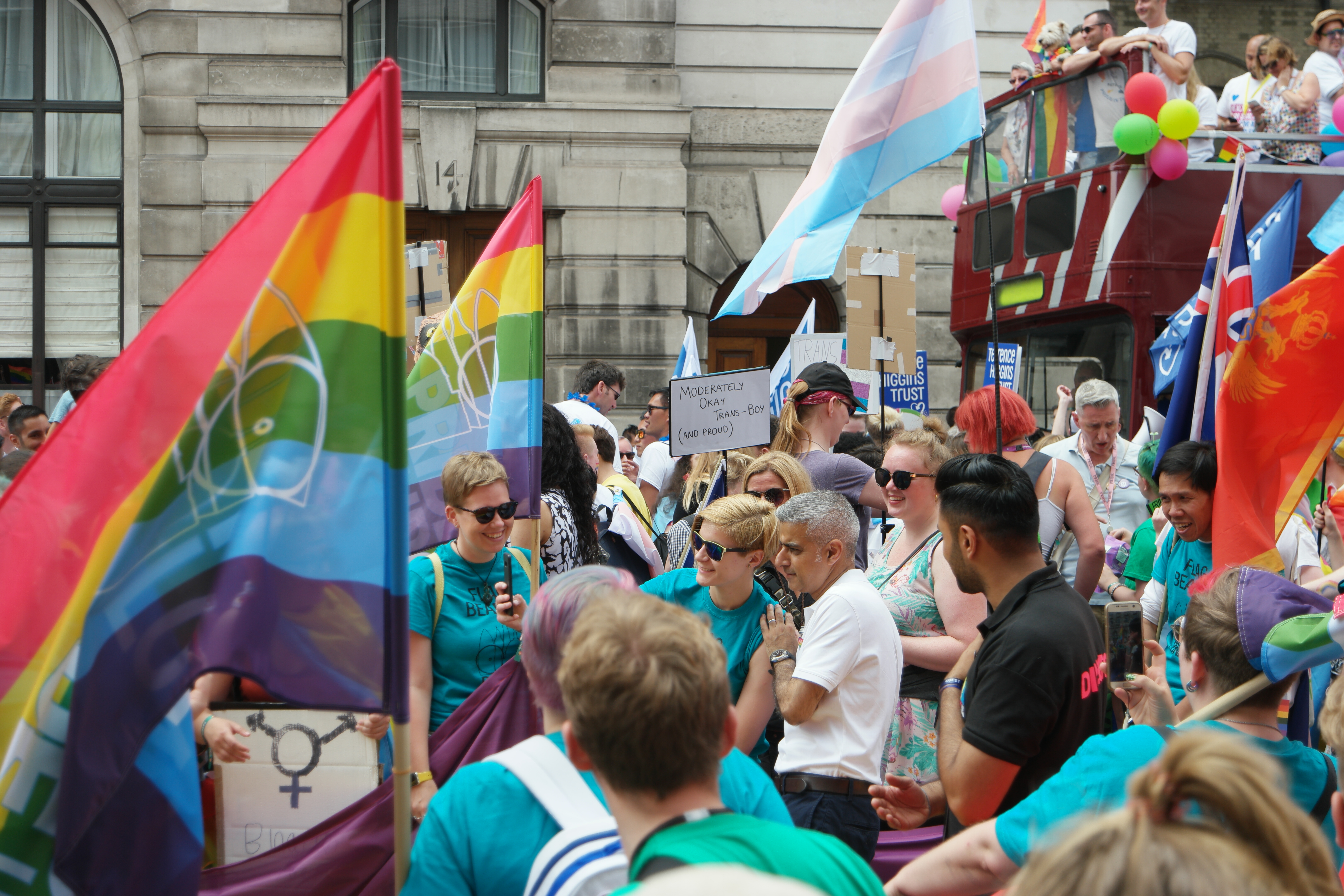
Khan has also been a staunch advocate for LGBTQ+ rights. Following the 2016 Orlando nightclub shooting, he attended a vigil in Old Compton Street, Soho, vowing to "do everything in [his] power to ensure that LGBT Londoners feel safe in every part of our city." Later that month, he marched in the LGBT Pride London parade.
In June 2020, amidst the George Floyd protests in the United Kingdom, the Statue of Winston Churchill, Parliament Square was defaced with graffiti, including the words "was a racist." In response, Khan controversially ordered the statue to be temporarily covered to protect it from further vandalism. On 9 June 2020, Khan stated his belief that some statues of slavers in London "should be taken down." He subsequently established the Commission for Diversity in the Public Realm, tasked with reviewing London's public realm landmarks, including statues, street names, monuments, sculptures, and artworks, with the potential for removal. This commission was formed in response to the anti-racist protests that saw the toppling of a Statue of Edward Colston in Bristol and the defacing of other statues across the UK. That same evening, the statue of Robert Milligan, an 18th-century merchant and slave trader, located outside the Museum of London Docklands, was removed by the local authority and the Canal & River Trust. On 11 June 2020, a joint statement from the Guy's and St Thomas' NHS Foundation Trust announced that the Statue of Robert Clayton and Statue of Thomas Guy would also be removed from public view, and that they would collaborate with Khan on the matter.
4.3.3. Transport Policies
Upon taking office, Sadiq Khan immediately announced the introduction of a "Hopper" bus ticket in London. This initiative allowed passengers to take two bus and tram journeys within an hour for the price of one, primarily benefiting low-income commuters. In January 2018, the system was upgraded to offer unlimited journeys within an hour, also allowing travel on Tube or rail services in between.
While Khan had pledged to freeze public transport fares during his election campaign, he clarified in June 2016 that this pledge would only apply to "single fares" and pay as you go fares, not daily, monthly, weekly, or yearly railcards, a decision that drew criticism. Since his first budget in 2017-18, Khan has increased the Greater London Authority's council tax precept by 31%, from 280 GBP to 363.66 GBP annually for a Band D property, to help fund policing and free transport for pensioners and schoolchildren.
In June 2016, Khan instructed TfL to prohibit any advertising on its network that was deemed to body shame or demean women. In July, he urged the government to allow TfL to take control of the struggling Southern rail service. In August, he launched the 24-hour Night Tube service on Fridays and Saturdays, an idea initially proposed by his predecessor, Boris Johnson.
Khan supported the expansion of London City Airport, reversing a block instituted by the previous administration. This decision drew criticism from environmental campaigners like Siân Berry, who argued it breached Khan's pledge to be London's "greenest ever" mayor. Conversely, he opposed expansion at Heathrow Airport, instead urging Prime Prime Minister Theresa May to support expansion at Gatwick Airport, citing "substantial economic benefits" for London.
In August 2020, Khan announced further delays for Crossrail, a major project to create the new Elizabeth line east-west rail link through central London. The project, originally due to open in 2018, was pushed back to 2022 and required an additional 1.10 B GBP in funding. The line eventually opened in May 2022.
Khan has supported the Sutton Link TramLink, a tram extension project included in his London Plan for 2021. However, the project has been on hold since 2020 due to COVID-19 funding issues and has faced challenges from Conservative MP Paul Scully, who criticized the imposition of the ULEZ charge on Sutton residents without adequate transport alternatives.
Khan is also overseeing the construction of the Silvertown Tunnel, a new tunnel under the Thames in Greenwich. His office asserts that the tunnel is necessary to alleviate traffic congestion. However, environmentalists, including the Green Party, Liberal Democrats, some Conservatives, and even some Labour MPs and mayors, oppose the project, arguing it will induce more traffic demand, worsen air quality, and increase car dependency. In July 2021, the London Labour regional conference voted by 74% to 26% to call for the tunnel to be scrapped. The tunnel is projected to open in summer 2025.
4.3.4. Environmental Policies
Sadiq Khan has consistently highlighted air pollution as "the biggest public health emergency of a generation" in London. In October 2017, he introduced the Toxicity Charge (T-charge). Operating within the same hours and zone as the London congestion charge, the T-Charge levied a 10 GBP fine on top of the congestion charge for older and more polluting vehicles (typically diesel and petrol vehicles registered before 2006) that did not meet Euro 4 standards.
In the same year, he announced plans for a replacement, the "Ultra Low Emission Zone (ULEZ)," which would charge owners of the most polluting cars a daily fine of 12.5 GBP in addition to the congestion charge. The ULEZ, which operates all day, every day (except Christmas Day), was initially introduced in Central London in 2019. It was extended to the North and South Circulars in 2021 and further expanded to cover the whole of Greater London in August 2023. The charge applies to diesel cars and vans that do not meet the latest Euro 6 standard, most petrol cars pre-2005, and levies a 100 GBP charge on non-compliant buses, coaches, and lorries. The initial zone's implementation led to a significant reduction in the number of the worst polluting vehicles entering the zone, from 35,578 in March 2019 to 26,195 in April after the charge was introduced.
Khan criticized the UK government in June 2017 for its perceived lack of commitment to improving general air quality. He argued that the government's action plan on the issue lacked "serious detail, fails to tackle all emission sources, such as from buildings, construction or the river, and does not utilise the government's full resources and powers," reflecting a historical low prioritization of the issue.
In September 2017, Khan announced the launch of the first 50 air quality audits for primary schools located in the city's most polluted areas. The objective of these audits was to identify and implement measures to reduce air pollution around an increasing number of schools, with reports published in 2018.
4.3.5. Housing Policies
Addressing London's housing crisis has been a key focus for Sadiq Khan. In his initial weeks as Mayor, he criticized foreign investors for treating homes in London as "gold bricks for investment." He urged them instead to invest in the construction of "affordable homes" for Londoners through a new agency, Homes for Londoners, which he chairs and which is funded by both public and private money.
While he initially stated in 2016 that he no longer supported rent freezes in the city, by 2022, Khan had reverted to supporting rent freezes as a measure to address housing affordability.
Khan has also taken steps to protect London's green spaces. He vetoed the construction of a football stadium and two blocks of flats on Green Belt land in Chislehurst, despite the plan having received support from Bromley Council. Khan emphasized his commitment to "oppose building on the Green Belt, which is now even more important than when it was created."
In October 2016, Khan launched a "No Nights Sleeping Rough" taskforce dedicated to tackling youth homelessness in London, aiming to provide support and pathways out of rough sleeping for young people.
4.3.6. Crime and Policing
Since Sadiq Khan became Mayor, overall crime rates in London increased in every reporting year up to 2020. However, they fell dramatically during the COVID-19 pandemic and have slowly returned to 2019 levels by 2024. In 2018, London was reported to be experiencing "an upsurge in serious violent crime, particularly among teenagers and young men," although these levels were not as high as those seen in the mid-2000s. Figures released by the Office for National Statistics (ONS) indicated that crime in London was five times higher than the rest of the United Kingdom in 2019.
Killings involving a blade saw a 28% increase from 67 in 2018 to 86 in 2019. There was a 54% increase in knife crime from 9,086 in the year ending 31 March 2016, just before Khan's election, to 14,000 in the year ending 30 September 2023. London's murder rate reached a ten-year high in 2019, with the Metropolitan Police recording 149 homicides that year, a more than 50% increase from 94 cases in 2014. Reasons cited for this increase included drugs, austerity, and a nationwide rise in violence. However, the murder rate, which is lower than in most rural areas of the UK, fell dramatically after 2020. Gun crime in the capital also dropped under Khan, reaching a low in 2024, with gun crime rates being significantly higher in other urban areas of the UK outside London. Antisocial behaviour peaked in 2019 before falling, and was less common in 2024 than elsewhere in the UK.
In an interview with LBC, Khan accepted responsibility for rising crime in London in his capacity as the Police and Crime Commissioner for the city, but he attributed the issue to budgetary cuts imposed by the UK Conservative Government. He stated that knife crime is "rising across England & Wales" and is "clearly a national problem that requires national solutions." Following the 2019 London Bridge stabbing, Khan asserted that terrorism and security cannot be separated from cuts to police and probation resources, emphasizing the need for more police and resources to enhance public safety.
In February 2025, a man was sentenced to 28 weeks in jail and subjected to a restraining order after pleading guilty to sending malicious emails to Khan, Jess Phillips, and a senior officer in the Metropolitan police.
4.3.7. COVID-19 Pandemic Response
During the COVID-19 pandemic in 2020, Sadiq Khan faced criticism from Health Secretary Matt Hancock for closing stations and reducing services on the Tube network, which Hancock believed would lead to overcrowding and endanger key workers. On 17 March 2020, Khan announced that the London Underground would begin operating a reduced service due to the virus, leading to the closure of the Waterloo & City line, several Tube stations, and the Night Tube. From 20 March, 40 Tube stations were closed.
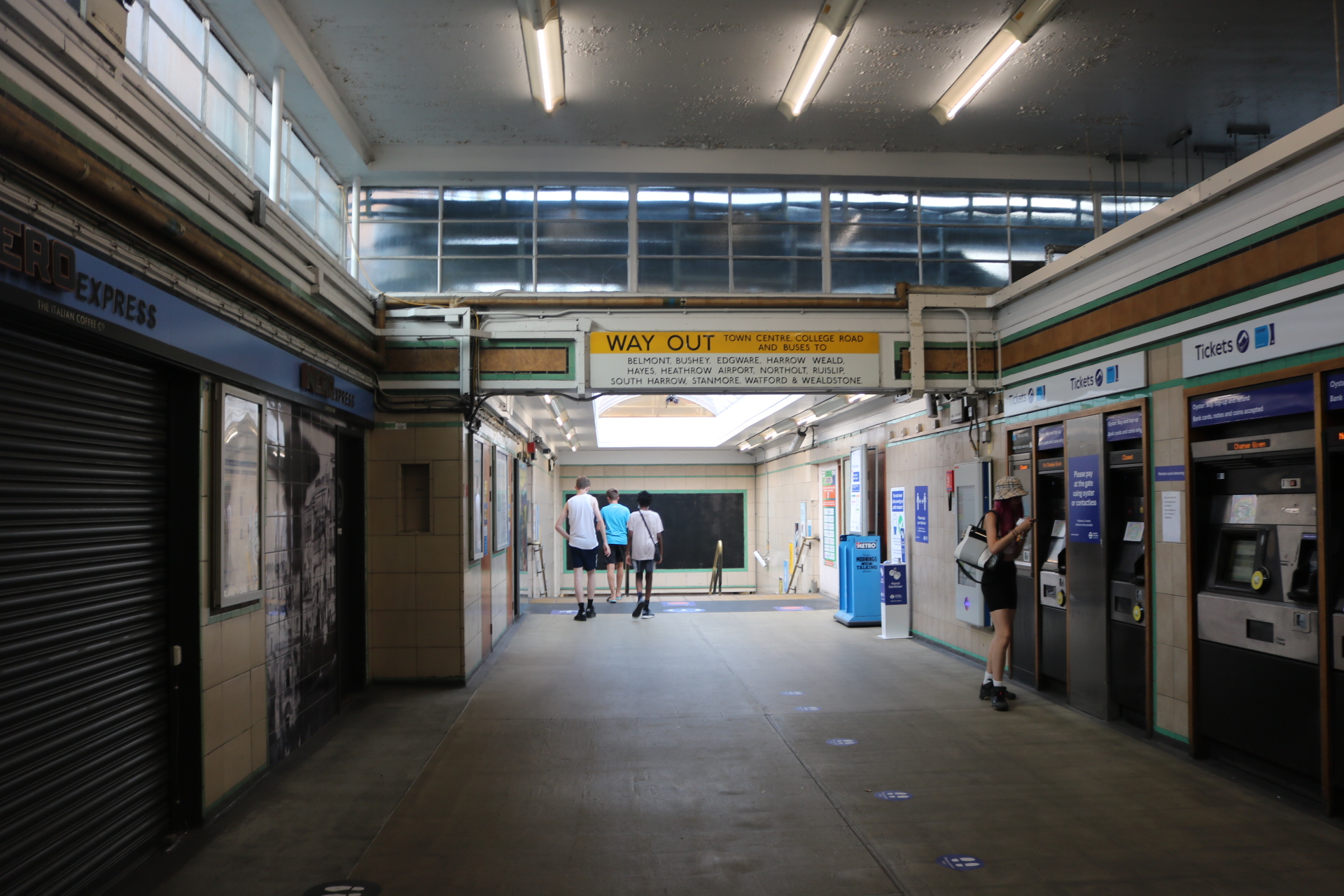
Khan was the first British political leader to advocate for face masks to be worn in public in April 2020. On 22 April, he warned that TfL could run out of funds to pay staff by the end of the month without government intervention. Two days later, TfL announced it would furlough approximately 7,000 employees, about a quarter of its staff, to mitigate a 90% reduction in fare revenues.
On 7 May, Transport for London, which Khan chairs, requested a 2.00 B GBP government bailout to sustain services until September 2020. The deputy mayor for transport, Heidi Alexander, warned that without an agreement, TfL might have to issue a "Section 114 notice," equivalent to a public body declaring bankruptcy. On 14 May, Khan and the UK Government agreed to a 1.60 B GBP emergency funding package to keep Tube and bus services operational. A condition of this bailout was that Khan had to raise TfL fares by 1% above inflation, a measure that went against a pledge he made during his mayoral election campaign. Transport Secretary Grant Shapps MP publicly attributed the "poor condition of TfL's financial position" to Khan's four years as Mayor.
From 22 June 2020, Khan implemented an increase in the London Congestion Charge from 11.5 GBP to 15 GBP per day. Its operating hours were also extended to 7am - 10pm every day, including weekends. Despite the pandemic, teachers, police officers, firefighters, and transport workers were included in the charge, despite a campaign by the Metropolitan Police Federation to exempt them.
Khan initiated discussions with local leaders in late September 2020 for further restrictions in London and submitted a plan to the central government to curb the worsening outbreak. On 13 October 2020, he called for a "circuit-breaker lockdown" for London, citing advice from the Scientific Advisory Group for Emergencies (SAGE). This plan was not immediately adopted, with a second national lockdown not introduced until 31 October. In January 2021, he declared a "major incident" in London due to the severe strain on the city's healthcare system, requiring emergency coordination.
According to polling in March 2021, 42% of Londoners believed Khan had handled COVID-19 "well," while 39% thought he handled it "badly." In July 2021, Khan maintained a face mask requirement on London transport, even after the government lifted the nationwide mandate, citing the risk of virus transmission. He later expressed frustration at the subsequent decline in compliance and TfL staff's inability to enforce these rules, stating he would lobby the government to introduce legal backing for the mandate.
5. Political Image and Views
Sadiq Khan's political ideology is widely characterized as being on the soft left of the Labour Party, aligning with social democrat principles. Political commentator Nick Cohen described him as a centre-left social democrat, while journalist Amol Rajan referred to him as "a torch-bearer for the social democratic wing" of Labour. The BBC noted his position on the party's soft left. Marxist commentator Richard Seymour described Khan as a centrist, and Fire Brigades Union General Secretary Matt Wrack placed him within "that part of the Labour Party that was in government under Blair and Brown." Journalist Dave Hill also characterized Khan as a social liberal.
Khan has publicly identified himself as a "proud feminist." In April 2019, he joined the Jewish Labour Movement. He criticized the Trump administration's decision to recognize Jerusalem as the capital of Israel, stating it made peace in the Middle East less likely. Khan has also called for the British government to apologize for the Jallianwala Bagh massacre in British-ruled India. In October 2019, he condemned plans for a protest march against Narendra Modi's government regarding India's treatment of Kashmir during the Hindu festival of Deepavali.
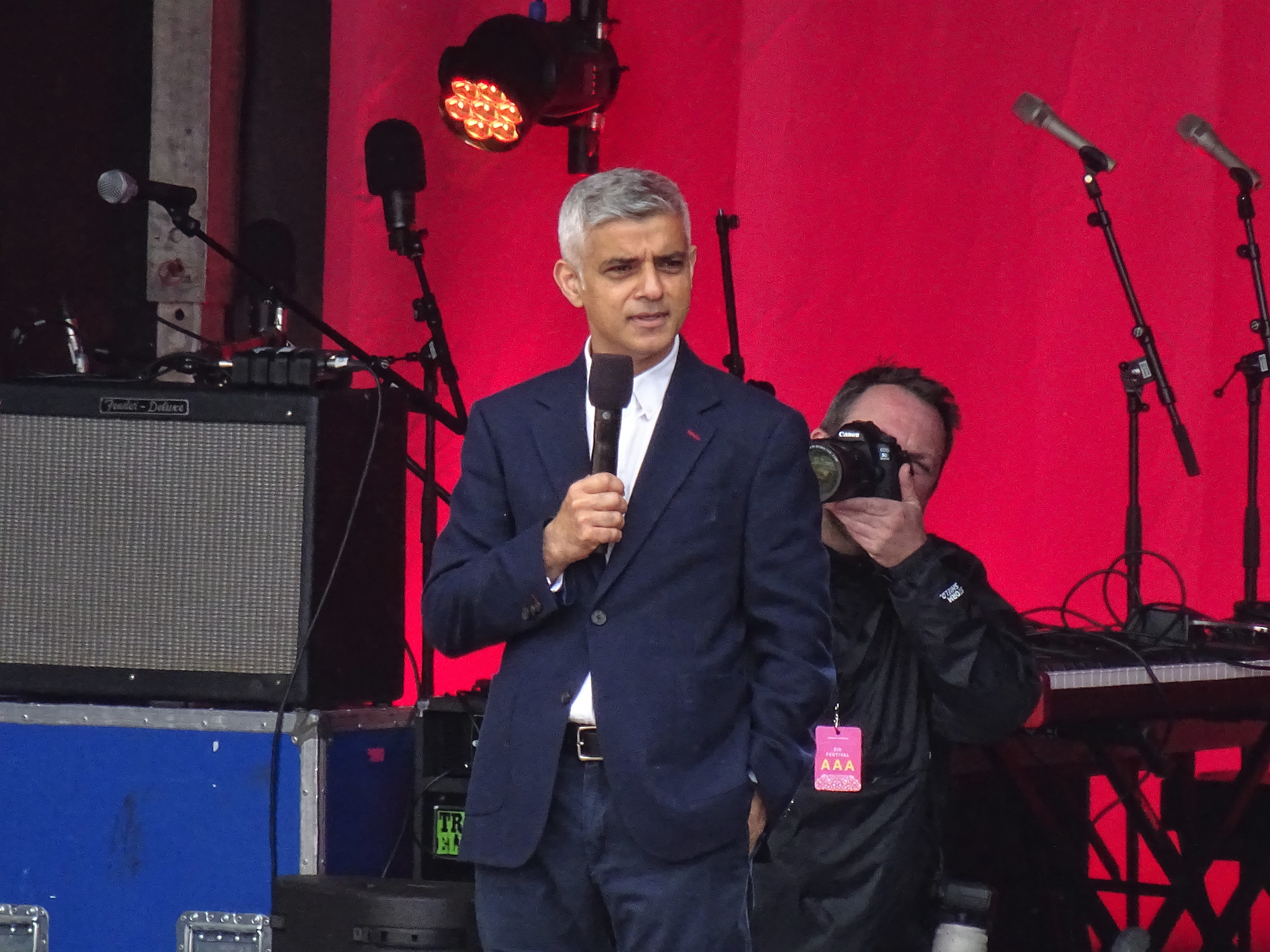
Khan, a practicing Muslim, often quotes from the Quran and hadith when discussing terrorism. He has received death threats from Islamic extremists after voting in favour of the Marriage (Same Sex Couples) Act. In 2016, he was also threatened by the far-right group Britain First, which vowed to take "direct action" against Khan where he "lives, works and prays" as part of an anti-Muslim campaign.
Journalist Dave Hill has described Khan as "savvy, streetwise and not averse to a scrap," noting his "joshing, livewire off-stage personality" which contrasts with his more formal public image. Khan previously performed stand-up comedy, including a ten-minute routine for "Stand Up for Labour" fundraising events, with comedian Arthur Smith suggesting he could become a "good club-level comedian."
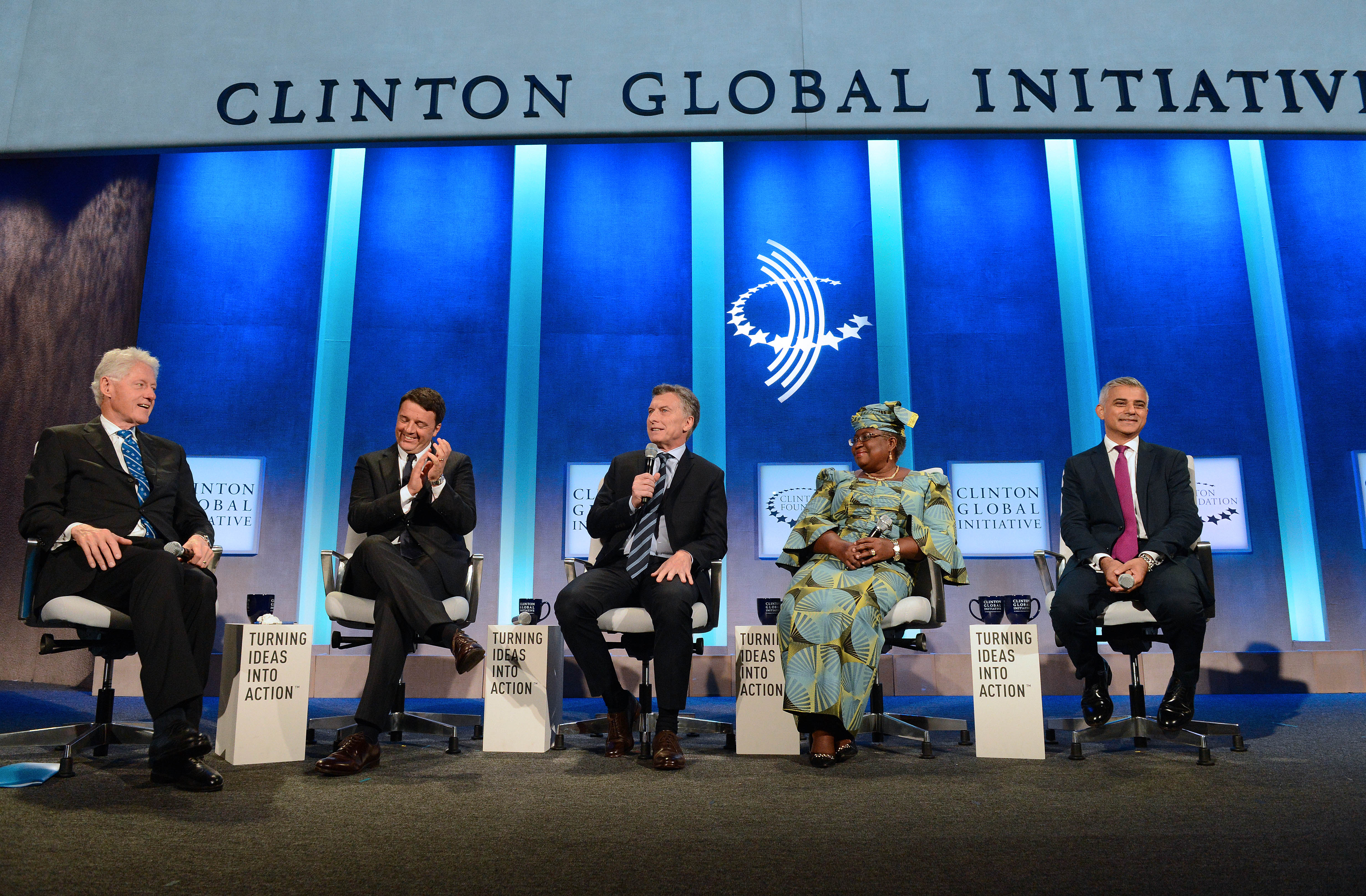
An ongoing political feud has existed between Khan and former US president Donald Trump since 2016. The dispute began when Khan criticized Trump over his proposed "Muslim ban," leading Trump to repeatedly attack Khan on Twitter. Shortly before Trump's 2019 state visit to the UK, Khan compared Trump to "European dictators of the 1930s and 40s." Upon arrival, Trump responded by calling Khan a "stone-cold loser."
On 13 October 2023, during the Israel-Hamas war, Khan urged Israel to exercise restraint, arguing that a blockade of the Gaza Strip could lead to "suffering" among Palestinian civilians. He further called for a ceasefire on 27 October 2023. These statements drew criticism from Jewish figures, including UK Chief Rabbi Ephraim Mirvis, who argued that "a ceasefire now would be an irresponsible stepping stone to yet more Hamas terrorist brutality." In a later interview with Mehdi Hasan, Khan appeared to suggest that the Chief Rabbi's criticisms had an Islamophobic motive, stating, "I'd ask those Jewish people to just pause and reflect on their response to me calling for a ceasefire... what motivated them to come out in the way they did against the Mayor of London, and the Mayor of Greater Manchester - I'll give you a clue, he's not called 'Ahmed Bourani', he's called Andy Burnham, whereas I'm called Sadiq Khan." Khan apologized for these remarks the day after the footage was released, acknowledging that it was unfair to direct his frustration at the Chief Rabbi.
In 2009, Khan referred to moderate Muslims as "Uncle Toms," a derogatory term for a member of an oppressed minority who betrays their group to benefit from oppressors. In 2016, Khan expressed regret for using the phrase and apologized, explaining that the context was his desire as a Communities Minister to engage with all individuals, including those "offside" as well as "onside."
6. Personal Life
Sadiq Khan is a practising Muslim who observes the fast during Ramadan and regularly attends Al-Muzzammil Mosque in Tooting. He is described as a "moderate, socially liberal Muslim." Khan has expressed the view that "too often the people who are 'representing' the Islamic faith aren't representative, they're angry men with beards. And that is not what Islam is about."
Khan married Saadiya Ahmed, a fellow solicitor, in 1994. They have two daughters, Anisah (born 1999) and Ammarah (born 2001), both of whom were raised in the Islamic faith. Khan is a supporter of Liverpool F.C..
7. Awards and Honours
Sadiq Khan has received numerous awards and honours throughout his career, recognizing his contributions to politics and public service.
- In 2005, six months after his election as the MP for Tooting, The Spectator awarded Khan the "Newcomer of the Year" award.
- In 2009, he became a Member of Her Majesty's Most Honourable Privy Council, which entitles him to the honorific "The Right Honourable" for life.
- He was nominated for the Politician of the Year Award at the British Muslim Awards in January 2013 and 2015, ultimately winning the award in February 2016.
- In late 2016 and 2017, Khan received and accepted the British GQ's Politician of the Year Award.
- He was awarded an honorary doctorate from the University of Law in 2017.
- In 2018, Khan was conferred Sitara-e-Pakistan by the Pakistani President Mamnoon Hussain for his services to Pakistan.
- He became an Honorary Fellow of the Royal Institute of British Architects in 2018.
- In 2019, Khan became an Honorary Bencher of the Middle Temple.
- In 2024, Khan won and accepted the Local Government Award at EPG's Political and Public awards, held at the House of Commons.
- He was knighted as a Knight Bachelor in the 2025 New Year Honours for political and public service, becoming the first Mayor of London to be awarded knighthood.
8. Criticism and Controversies
Sadiq Khan's political career and mayoral tenure have been marked by various criticisms and controversies, ranging from specific incidents and disputes to broader public and political opposition to his policies.
8.1. Specific Incidents and Disputes
In 2009, Khan referred to moderate Muslims as "Uncle Toms," a derogatory label for a person of an oppressed minority who is perceived to betray their group to benefit from their oppressors. In 2016, Khan publicly stated, "I regret using the phrase... and I am sorry," explaining that the context was his desire as a Communities Minister to engage with all individuals, including those with differing views.
A notable and ongoing political feud has existed between Khan and former US president Donald Trump since 2016. The dispute began when Khan criticized Trump over his proposed "Muslim ban." Trump subsequently responded by attacking Khan multiple times on Twitter over several years. Shortly before Trump's 2019 state visit to the UK, Khan compared Trump to "European dictators of the 1930s and 40s." Upon arrival, Trump retorted on Twitter by calling Khan a "stone-cold loser."
Khan also faced a public dispute with UK Chief Rabbi Ephraim Mirvis in October 2023 during the Israel-Hamas war. After Khan called for a ceasefire, Mirvis criticized the stance, stating that "a ceasefire now would be an irresponsible stepping stone to yet more Hamas terrorist brutality." In a later interview, Khan appeared to suggest that the Chief Rabbi's criticisms had an Islamophobic motive, stating, "I'd ask those Jewish people to just pause and reflect on their response to me calling for a ceasefire... what motivated them to come out in the way they did against the Mayor of London, and the Mayor of Greater Manchester - I'll give you a clue, he's not called 'Ahmed Bourani', he's called Andy Burnham, whereas I'm called Sadiq Khan." Khan apologized for these remarks the day after the footage was released, acknowledging that it was unfair to direct his frustration at the Chief Rabbi.
Regarding his parliamentary expenses, Khan had to repay 500 GBP in 2007 for a newsletter sent to constituents that featured an unduly prominent "Labour rose" logo, which was deemed to promote a political party. In April 2010, it was revealed that he had repaid 2.55 K GBP for Christmas, Eid, and birthday cards sent to constituents, dating back to 2006. While initially rejected, a new invoice was submitted that no longer identified the nature of the claim, and it was then accepted. Khan attributed these improper claims to "inexperience" and human error, and he apologized for breaching the expenses rules. In February 2008, a conversation between Khan and his constituent Babar Ahmad, a prisoner accused of terrorism, at Woodhill Prison was reportedly bugged by the Metropolitan Police Anti-Terrorist Branch, leading to an inquiry and a review of policies regarding the monitoring of MPs.
8.2. Public and Political Opposition
Several of Sadiq Khan's policies and political positions have drawn significant public and political opposition. The expansion of the Ultra Low Emission Zone (ULEZ) to cover all of Greater London, for instance, has faced considerable resistance. Opponents, including some Labour MPs, have raised concerns about its financial impact on residents and small businesses, particularly those with older vehicles, and questioned its overall environmental effectiveness. Conservative MP Paul Scully has specifically challenged the ULEZ charge on Sutton residents, arguing for better public transport alternatives.
The construction of the Silvertown Tunnel under the Thames in Greenwich, which Khan supports to relieve traffic congestion, has also sparked widespread opposition. Environmental groups, the Green Party, Liberal Democrats, some Conservatives, and even some Labour MPs and mayors, oppose the project, arguing it will induce more traffic demand, worsen air quality, and increase car dependency. In a notable vote, the London Labour regional conference called for the tunnel to be scrapped, with 74% voting against it.
Khan''s transport fare policies have also drawn criticism. While he initially pledged to freeze all public transport fares during his 2016 mayoral campaign, he later clarified that this only applied to "single fares" and pay-as-you-go fares, not daily, weekly, or monthly travelcards, leading to accusations of breaking an electoral promise.
His decision to back the expansion of London City Airport was criticized by environmental campaigners, who argued it contradicted his pledge to be London's "greenest ever" mayor.
Concerns about crime rates in London have been a persistent source of criticism during Khan's tenure, particularly regarding the rise in knife and gun crime. While Khan has accepted responsibility as the Police and Crime Commissioner for the city, he has consistently attributed the increases to budgetary cuts imposed by the UK Conservative Government, arguing that crime is a national problem requiring national solutions.
His handling of the COVID-19 pandemic also garnered mixed reactions. He was criticized by Health Secretary Matt Hancock for closing stations and reducing Tube services, which Hancock believed would lead to overcrowding and endanger key workers. The terms of the 1.60 B GBP government bailout for Transport for London (TfL) required Khan to raise TfL fares by 1% above inflation, a measure that went against his mayoral campaign pledge. Furthermore, the increase in the London congestion charge to 15 GBP per day during the pandemic, which included key workers, also faced opposition.
The establishment of the Commission for Diversity in the Public Realm and the subsequent removal of statues linked to the slave trade have generated significant public debate, with some supporting the moves as necessary steps towards racial justice and others criticizing them as attempts to rewrite history or erase heritage.
9. Legacy and Public Perception
Sadiq Khan's legacy as Mayor of London is multifaceted, characterized by significant achievements in urban policy, particularly in transport and environment, alongside persistent challenges in areas like crime and housing.
His tenure is widely recognized for making London's transport system more accessible, notably through the introduction of the "Hopper" fare, which allows unlimited bus and tram journeys within an hour, and the expansion of the Night Tube service. His commitment to improving air quality has been a defining feature, with the implementation of the Toxicity Charge (T-Charge) and the phased expansion of the Ultra Low Emission Zone (ULEZ) contributing to a reduction in polluting vehicles in central London. These environmental initiatives have been praised for their positive impact on public health.
Khan's historic election as the first Muslim mayor of a major Western capital, and his subsequent re-elections making him the first London Mayor to win three terms, underscore his broad appeal and ability to connect with London's diverse population. He has actively championed diversity and social integration, establishing the Commission for Diversity in the Public Realm and promoting initiatives for LGBTQ+ rights and interfaith understanding.
However, his legacy also includes significant challenges. Critics point to the rise in knife and gun crime rates during parts of his tenure, although Khan has consistently attributed this to national trends and government funding cuts. The Crossrail project, a major infrastructure undertaking, experienced significant delays and cost overruns under his oversight. The Silvertown Tunnel project continues to be a source of controversy, with environmentalists and some political factions opposing it due to concerns about increased traffic and pollution. The financial stability of Transport for London (TfL) also faced considerable strain, particularly during the COVID-19 pandemic, necessitating government bailouts that led to fare increases, a reversal of his initial campaign pledge.
Overall, Sadiq Khan is perceived as a resilient and progressive leader who has steered London through complex challenges while striving to make the city more inclusive, environmentally sustainable, and affordable for its residents. His long-term impact on London's urban landscape and social fabric will continue to be assessed in the broader historical and social context of the city.